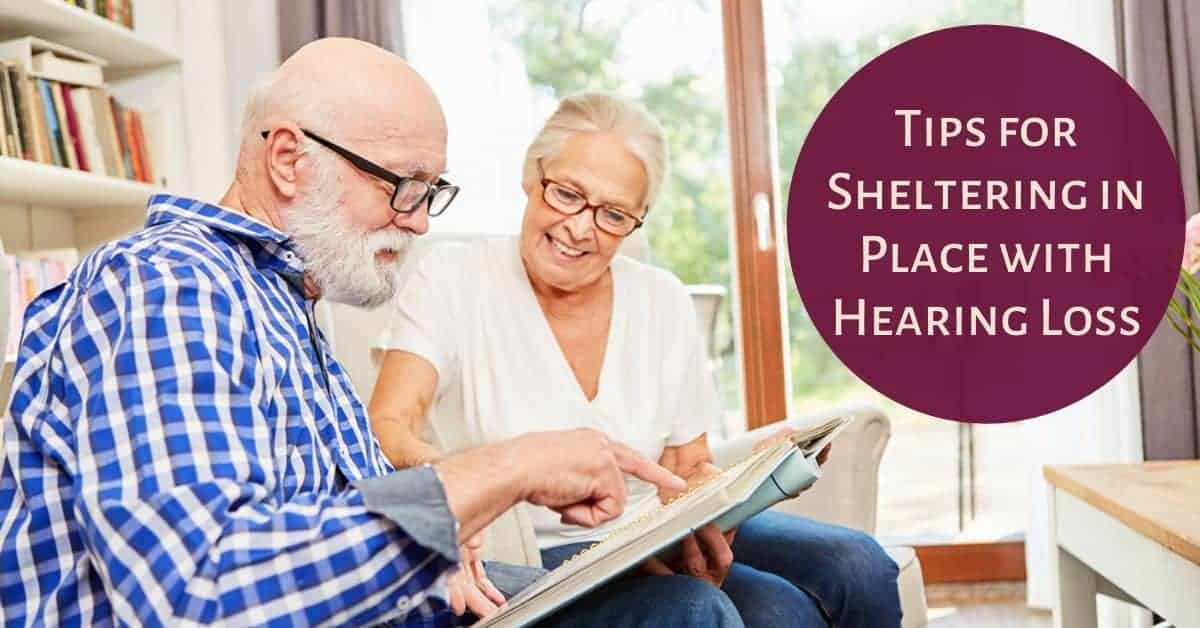Since the emergence of COVID-19, the world has been left floundering trying to figure out and determine the best course of action during a Pandemic. While opinions vary drastically about the severity of the situation, we have learned that being forced to stay at home takes a great toll on everyone, but especially those with hearing loss. We know the science of the importance of remaining social, but when your only means are by unconventional methods such as video chatting, communicating through masks, and added phone challenges, this hits citizens with hearing loss the hardest. While Stay at Home orders begin to relax, it’s important we prepare if they should be reinstated again. Luckily, the American Speech and Language Association (ASHA) has issued advice for successfully maintaining hearing aids while sheltering in place.
Maintain Hearing Aids at Home
Hearing aids are technologically advanced devices, which require consistent maintenance to perform properly. During these uncertain times, it is especially important to know what actions you can take to properly care for your hearing aids at home.
- Visual Checks – Each day, take a few minutes to visually check your hearing aids. Look for wax buildup in the wax basket or on the dome. It is also important to check for cracks on the hearing aid body or tubing.
- At Home Cleaning – If during your visual check you notice dust, debris, or wax buildup anywhere on your hearing aids, you can usually clean them at home. If you don’t already have one, this may be a good time to invest in a hearing aid cleaning kit. These kits come with a cleaning cloth, brush, and ear wax pick. When wiping down your hearing aids, it is imperative that you remember to never wet the cloth. A clean dry cloth is the best way to clean hearing aids. Also, be sure to use the brush and/or pick gently and carefully when removing debris or wax.
- Check Batteries – Most people are making spontaneous trips to the grocery store or pharmacy less often, making it especially important to check your hearing aid batteries consistently. Ensure that you always have a few extra pairs of batteries in the house so you are not caught without working hearing aids.
- Keep Moisture Out – It is important to keep moisture and humidity away from your hearing aids as much as possible. The hot and humid Missouri summers will soon be upon us, and during this time we must take extra care in protecting our devices. You can place your hearing aids in an air-tight container to help protect them, or invest in specialized hearing aid drying containers.
Improve the Listening Environment at Home
For some of us, home has become a much busier and louder place since COVID. Adults are adjusting to working from home, while children are participating in online learning and trying to entertain themselves at home. This can make the house a difficult listening environment for people with hearing loss. Follow these tips to help improve your situation.
- Only talk to family members when they are in the same room as you.
- Ask communication partners to look at you when they speak to you – no staring at screens or communicating with their back turned to you.
- Used closed captioning when available
- Stay honest about your hearing and your needs. Do not pretend to be able to hear your family members or your coworkers. It will only lead to longer term miscommunication.
- Take quiet time when you can. Listening is more difficult for people with hearing loss – and this can cause fatigue if you do not take time to give your brain a break.
Consider Audiology Telehealth
Luckily, technology has allowed our clinic and many other audiologists to offer audiology telehealth services. If you are having issues with your hearing aids or are wondering if you may have hearing loss, reach out to our friendly team. We look forward to scheduling a virtual appointment where we can meet with you through our innovative telehealth services. You will have access to quality hearing healthcare without ever leaving the comfort of your home.
At Hearing Wellness Solutions, we care deeply about your health and the health of your family. We hope that you and your family are staying safe and healthy during these trying times.


